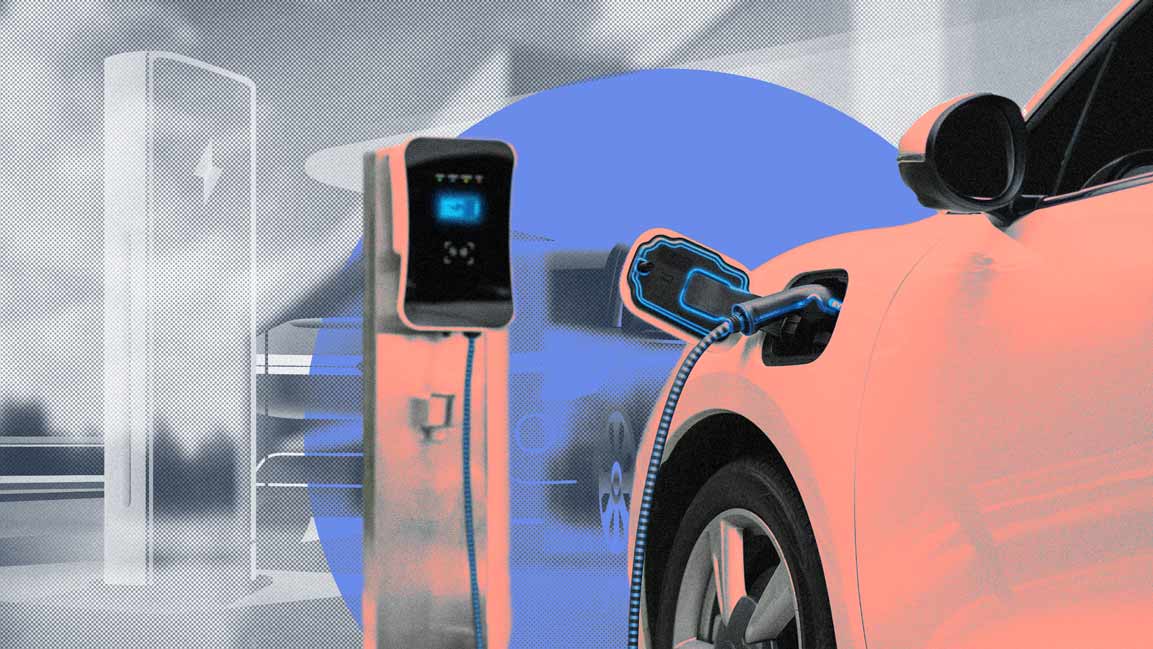- | 3:00 pm
Middle East’s EV market projected to reach $54 billion by 2035: Report
The report outlines the key factors influencing EV adoption across the region.

As demand for electric vehicles (EVs) grows and advancements in sustainable solutions continue, the Middle East’s EV market is projected to reach $54 billion by 2035, accounting for up to 64% of new car sales.
This insight comes from Bain and Company’s latest report, Is the Middle East Ready to Shift Gears to Electric Vehicles, which emphasizes the significant growth potential for EVs in the region.
The report identifies several critical drivers of EV adoption, including government policies, infrastructure development, and consumer demand. However, it also highlights barriers to growth, such as high prices, a limited selection of EV models that cater to local preferences, and insufficient charging infrastructure.
It stresses the need for coordinated efforts from the public and private sectors to overcome such challenges. “Early movers in the region have a unique opportunity to establish a strong brand presence and secure prime locations for charging infrastructure,” said Karim Henain, Partner at Bain & Company Middle East.
Moreover, the report segments Middle Eastern consumers into three distinct buyer personas reflecting varying levels of readiness to adopt EVs: EV enthusiasts (approximately 20%), who are highly motivated buyers, EV explorers (around 50%), who are open to considering EVs and EV skeptics (about 30%), who show reluctance to adopt EVs.
EV enthusiasts are willing to pay a premium and actively seek out EVs from both traditional and pure electric brands. EV Explorers are open-minded but cautious, exploring EV options while weighing cost and infrastructure concerns. In contrast, EV skeptics hesitate to switch from internal combustion engine (ICE) vehicles without more robust infrastructure and competitive pricing.
“Understanding the unique needs of these three customer segments is critical for successfully driving EV adoption in the region. By targeting the specific preferences of EV enthusiasts and addressing the concerns of explorers and skeptics, businesses can tailor their strategies to capture the most valuable EV customers,” said Jimmy Nicolas, Partner at Bain & Company.
The report emphasizes that government-led policies, such as tax incentives, free parking for EVs, and investments in charging infrastructure, are crucial for driving consumer demand. Additionally, original equipment manufacturers (OEMs) and dealerships can facilitate the transition to the EV era by expanding model offerings, providing test-drive opportunities, and engaging in infrastructure projects. Building a network of fast-charging stations in key locations—such as shopping malls, workplaces, and residential areas—will be vital in addressing range anxiety and supporting EV growth.
“The shift toward electric vehicles in the Middle East is more than just an environmental necessity; it is a significant economic opportunity. Governments and businesses must act now to capitalize on this momentum, paving the way for a more sustainable and prosperous future,” said Eric Zayer, Partner at Bain & Company.































